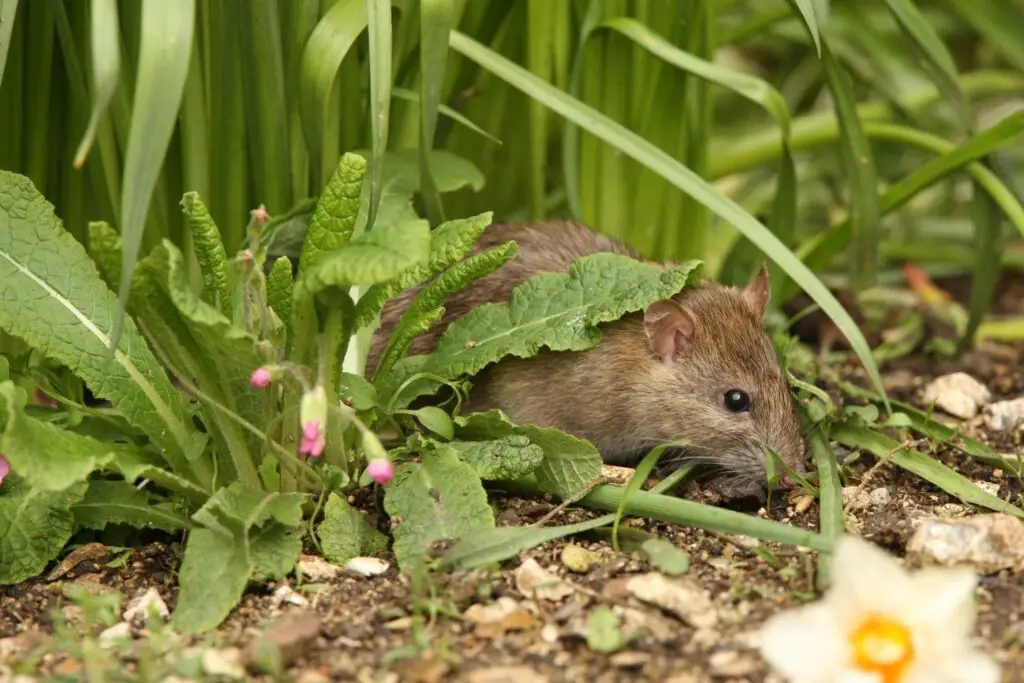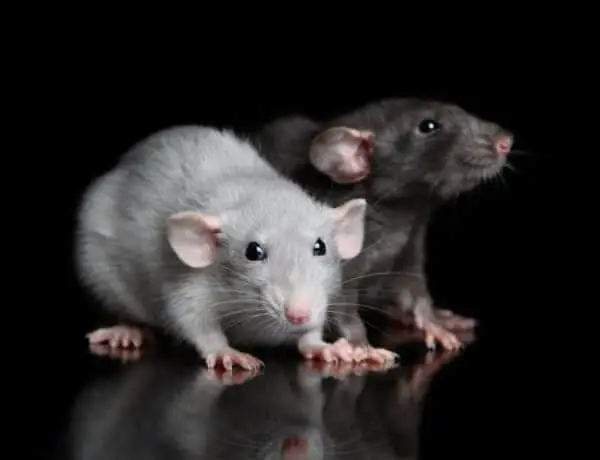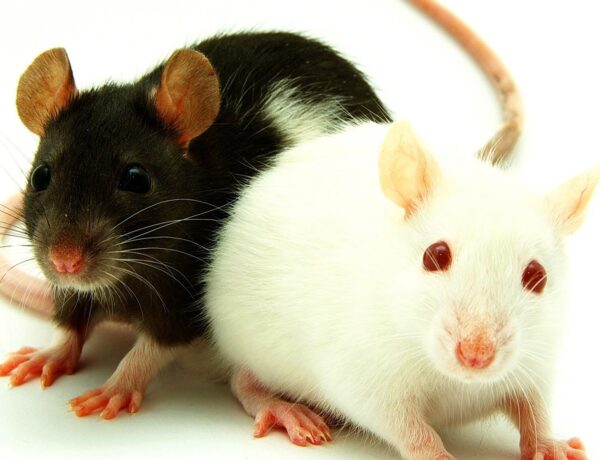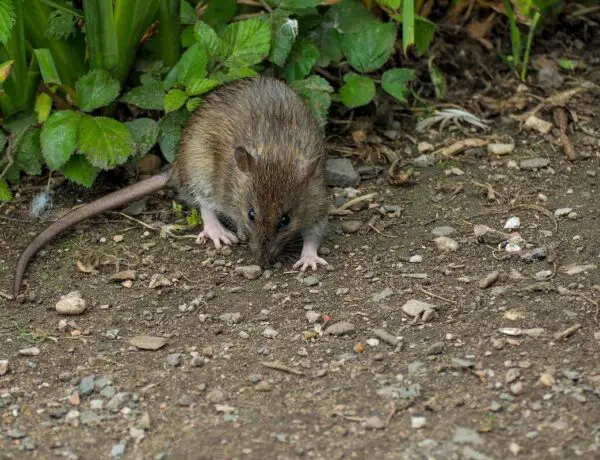Introduction
How To Keep Rats Out Of Garden: Gardens, with their lush vegetation and bountiful harvests, are a source of pride and nourishment for many. They serve as sanctuaries of serenity and pockets of green in our urban landscapes. However, maintaining the beauty and productivity of your garden can be a constant battle, especially when uninvited guests, like rats, decide to feast on your hard-earned fruits and vegetables. Rats are intelligent, resourceful creatures with a strong sense of smell, and when they catch wind of the delectable treats your garden has to offer, they can become a persistent nuisance. Whether you’re an avid gardener or just someone who enjoys the simple pleasure of tending to a few plants, rat infestations can be disheartening and economically damaging.
There are proactive steps you can take to deter these furry intruders and preserve the sanctity of your garden. In effective strategies and time-tested tips on how to keep rats out of your garden. From understanding the habits and motivations of rats scared to implementing humane and eco-friendly methods of prevention, we will empower you to reclaim your garden and protect it from unwanted rodent visitors. We have a variety of approaches, including natural deterrents, physical barriers, and good gardening practices that can discourage rats from taking up residence among your prized plants.
Consistency and vigilance in maintaining a rat-free environment, ensuring that your garden remains a haven for growth, beauty, and tranquility. So, whether you’re dealing with a current rat problem or simply wish to fortify your garden against potential incursions, join this to safeguard your green oasis. Let’s on the path to harmonious coexistence with nature and cultivate a thriving garden that thrives free from the nibbling paws of these unwanted guests.

What repels rats in the garden?
While rats can be difficult to get rid of, there are some effective and natural ways to deter them from your garden. Some of the most effective natural rat deterrents include crushed pepper, peppermint oil, cayenne pepper, black pepper, cloves, citronella, eucalyptus, and chilli flakes.
Peppermint Oil: Rats dislike the strong, minty scent of peppermint oil. Place soaked cotton balls or sachets of peppermint leaves around your garden, particularly in areas where rat activity is observed.
Marigolds: These vibrant flowers not only add beauty to your garden but also emit a smell that rats find unpleasant. Plant marigolds near the perimeter of your garden to create a natural barrier.
Wire Mesh Fencing: Install wire mesh fencing around your garden, making sure it extends underground to prevent burrowing. This creates a formidable barrier that rats can’t easily breach.
Raised Beds: Elevating your garden beds can deter rats, as they have a harder time climbing. Use hardware cloth or fine mesh at the bottom of the raised beds to further fortify the barrier.
What smell keeps rats away?
Rats are not comfortable with the smell of peppermint oil, lavender oil, eucalyptus oil, lemon oil, or cedarwood chips. This smell triggers their brain to recognize danger and will drive them out of your home quickly!
Mothballs, which contain naphthalene, emit a smell that rats find repulsive. However, it’s essential to use caution when using mothballs, as they can be toxic to humans and pets. To use mothballs safely.
Place mothballs in enclosed spaces where rats may be nesting, such as attics or crawlspaces, ensuring that they are out of reach of children and pets. Used cat litter can be a natural rat deterrent, as rats perceive the scent of felines as a threat. Scatter used cat litter in areas where rats are a concern, but keep in mind that this method is most effective if you have a resident cat.
The pungent aroma of garlic can also deter rats. Planting garlic in your garden or placing garlic cloves near rat-prone areas can help keep them away. While these scents can be effective in repelling rats, it’s to that persistence is key. Rats are resourceful creatures, and they may become accustomed to certain smells over time.
Therefore, it’s often necessary to rotate or combine different repellents to maintain their effectiveness. Additionally, maintaining good sanitation practices and sealing entry points into your home or garden can complement the use of repellent scents in your efforts to keep rats away.
What smell do rats hate the most?
Some people have found that they can deter rats from coming onto their property by using certain smells and aromas. The most effective smells are essential oils, specifically; peppermint, castor, and citronella. These are good choices because while their smell is powerful, many people also find the aromas pleasant.
Rats possess an acute sense of smell, which they rely on for navigation, communication, and locating food sources. By understanding the smells rats find repugnant, you can employ natural and safe methods to discourage these rodents from invading your home, garden, or property. Some of the smells that rats hate the most and how to use them effectively as rat repellents.
Peppermint is at the top of the list when it comes to smells that rats despise. Its strong and minty aroma overwhelms their sensitive olfactory receptors. Here’s how to use peppermint effectively to deter rats.
Soak cotton balls in pure peppermint oil and place them in areas where rats are active or likely to enter. Replace them periodically to maintain the scent’s potency. Mix a few drops of peppermint oil with water in a spray bottle and apply it to surfaces, entry points, or around the perimeter of your property.
Eucalyptus oil emits a fresh, menthol-like fragrance that rats find equally unpleasant. To use eucalyptus oil as a rat repellent. Soak cotton balls in eucalyptus oil and strategically place them in rat-prone areas. Dilute eucalyptus oil with water and use it as a spray in and around your home or garden to create a scent barrier.
Ammonia has a pungent odor that rats cannot tolerate. To use ammonia as a rat deterrent. Mix a few tablespoons of ammonia with water and place the solution in shallow bowls near areas where rats are active. Ensure that pets and children cannot access these bowls. You can also soak rags or cotton balls in ammonia and place them in rat-prone areas.
What will make rats go away?
Chili powder can be used to dust along baseboards which are common rat pathways and inside hard to reach areas like wall cavities. Essential oils, ammonia, and bleach can all be used to cover surfaces or diffused around potential rat attractants in attempts to keep them away.
Rats can squeeze through small openings, so it’s crucial to identify and seal any potential entry points into your home or other structures. Inspect your property for gaps and cracks in walls, floors, and foundations, and use materials like caulk, steel wool, or wire mesh to block these entryways.
If you prefer a non-lethal approach, humane traps can be used to capture rats alive. Once trapped, you can release them far away from your property, preferably in a wooded or natural area. Ensure the traps are checked regularly to prevent undue stress or harm to the captured rats.
In severe infestations or cases where DIY methods prove ineffective, it’s wise to seek the assistance of professional pest control services. Pest control experts have the knowledge, experience, and access to specialized treatments to effectively eliminate rats from your property.
Regardless of the method you choose, consistency and vigilance are key to success. Rat populations can rebound quickly, so ongoing monitoring and maintenance of preventive measures are essential to ensure rats do not return.
Why do rats suddenly appear?
There are two main things that can attract mice and rats to your house – food and shelter. If you don’t tidy up properly and there’s food waste on the floor or surfaces, rodents are going to love it! Rats and mice also need shelter, particularly during winter to avoid the worst of the cold.
The sudden appearance of rats in your home or property can be both startling and concerning. These resourceful rodents seem to appear out of nowhere, leaving you wondering why they’ve chosen your space. To effectively address this issue, it’s crucial to understand the reasons behind the sudden rat presence and implement appropriate solutions.
Rats may seem to suddenly appear during certain seasons, such as fall and winter. As temperatures drop, rats seek warmth and shelter, often infiltrating homes and other structures. They can enter through small gaps, cracks, or damaged areas in your property’s exterior. Inspect your property for potential entry points and seal them with materials like caulk, steel wool, or wire mesh.
Rats are drawn to areas with easily accessible food and water. If you recently started composting, began feeding outdoor pets, or have overgrown vegetation that attracts insects (a food source for rats), this may explain their sudden presence. Securely store all food, including pet food, in airtight containers. Properly manage composting to prevent attracting rats.
Trim overgrown vegetation and maintain a tidy garden to reduce harborage and insect attraction. Construction or landscaping activities in your neighborhood can disrupt rat nests or burrows, causing rats to seek new shelter in nearby homes or properties. If construction is ongoing in your area. Consider reinforcing your property’s defenses, sealing entry points, and using natural deterrents to discourage rats from entering.
What does baking soda do to rats?
So, after ingesting baking soda, this product reacts with the acids in the rat’s stomach and creates carbon dioxide. This carbon dioxide then builds within the rat and causes a rupture or blockage that eventually kills the rat. This method may work, but there is no guarantee that it will be effective and is not humane.
The idea behind using baking soda as a rat poison is that rats will ingest it, and the baking soda will react with the acids in their stomachs, producing gas that can cause discomfort and eventually lead to death. While baking soda is generally considered safe for humans, it is crucial to understand that rats have different physiological processes and digestive systems.
There is limited scientific evidence to support the idea that baking soda is an effective method for eliminating rats. Rats are omnivores with a wide-ranging diet, and they have developed the ability to consume a variety of foods, some of which are toxic to other animals. Baking soda may not be consistently effective in eliminating rat populations, and rats may not consume it in sufficient quantities to be lethal.
Using baking soda as a rat poison raises safety concerns. While baking soda is generally considered safe for humans and can be used in cooking and cleaning, its effectiveness and safety when ingested by rats are not well-documented. Additionally, if baking soda is used in areas accessible to children or pets, it poses a potential risk to them as well.
What smell do rats fear?
Peppermint oil is an effective method for keeping mice and rats away. These rodents cannot stand this oil’s robust and minty smell, so a few drops around your home can go a long way in keeping them away.
Rats are known for their keen sense of smell, which they use for navigation, communication, and finding food sources. While rats are adaptable and resilient creatures, there are certain scents they find aversive or threatening, making them effective natural rat repellents.
Peppermint is a scent that rats strongly dislike. Its potent and minty aroma overwhelms their sensitive olfactory senses. Here’s to use peppermint effectively to repel rats. Soak cotton balls in pure peppermint oil and place them in areas where rats are active or likely to enter. Replace these periodically to maintain the scent’s potency.
Mix a few drops of peppermint oil with water in a spray bottle and apply it to surfaces, entry points, or around the perimeter of your property. Eucalyptus oil emits a fresh, menthol-like fragrance that rats find equally unpleasant. Soak cotton balls in eucalyptus oil and place them in areas where rats are a problem.
Dilute eucalyptus oil with water and use it as a spray around your home or garden to create a scent barrier. Mix a few tablespoons of ammonia with water and place the solution in shallow bowls near areas where rats are active. Ensure that pets and children cannot access these bowls. You can also soak rags or cotton balls in ammonia and place them in rat-prone areas.
What plants do rats hate the most?
First, you can plant herbs around your garden, sort of like a protective wall to repel rodents. Herbs that have the strongest smells such as mint (especially peppermint), catnip, rosemary, sage, lavender, oregano, and basil are the most effective plants at keeping these unwelcome creatures away.
Marigolds are colorful and fragrant flowers that rats find particularly unpleasant. Their strong scent can repel rats and other pests. Planting marigolds around the perimeter of your garden or among your crops can create a natural barrier.
Daffodils contain a substance called lycorine, which rats and other rodents dislike. Planting daffodils in your garden can help deter rats. However, be cautious with daffodils, as they are toxic to many animals, including dogs and cats, so keep them out of reach of pets.
Lavender is known for its soothing fragrance to humans but has the opposite effect on rats. Rats are repelled by the strong scent of lavender. Planting lavender bushes or using lavender oil around your garden can help keep rats away.
Peppermint is another scent that rats strongly dislike. You can plant peppermint in your garden or use peppermint oil to create a rat-repelling barrier. Soak cotton balls in pure peppermint oil and place them strategically around your garden to deter rats.

Conclusion
As our rats out of your garden, it’s evident that maintaining a flourishing and pest-free outdoor space requires both vigilance and a well-thought-out approach. Your garden is a sanctuary, a place where nature’s beauty and your hard work harmonize. Protecting it from rat infestations ensures not only the safety of your produce but also your peace of mind. Throughout this we’ve a range of strategies to help you achieve a rat-free garden. These methods include. Harnessing the power of scents and plants that rats dislike can discourage them from entering your garden. From peppermint oil to marigolds, nature is a helping hand.
Implementing protective measures such as wire mesh fencing, raised beds, and hardware cloth can create formidable obstacles that deter rats from accessing your rats garden bounty. Maintaining a clean and organized garden, promptly removing fallen fruits, and practicing proper composting are essential steps in minimizing rat attractions. For those who prefer non-lethal methods, humane traps can be a compassionate way to capture and release rats away from your garden. When rat infestations become unmanageable, seeking the help of pest control professionals can target solutions to protect your garden.
Regularly inspect your garden for signs of rat activity and adapt your prevention methods as needed. Rats are intelligent and adaptable creatures, so it’s essential to stay one step ahead. By implementing these strategies and maintaining a proactive attitude toward rat prevention, you can create a garden that thrives free from the nibbling paws of unwanted guests. Your garden will flourish as a place of tranquility, growth, and nourishment for both you and your family. As you cultivate your rat-free garden, consider sharing your newfound knowledge with fellow gardeners.




No Comments